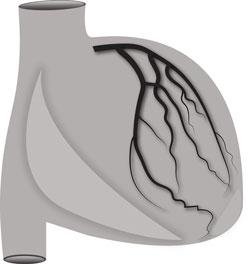High blood pressure dangers go far beyond just heart disease. Uncontrolled high blood pressure, also known as hypertension complications, can silently wreak havoc on your body's vital organs.
The scary part? There often aren't any symptoms in the early stages. This is why getting regular blood pressure checks is crucial, especially if you're at risk of untreated high blood pressure risks.
The good news is early detection makes a big difference. Often, simple lifestyle changes and home remedies can keep your blood pressure in check. Let's explore the hidden dangers of high blood pressure and how to take control of your health.
Understanding High Blood Pressure
Blood pressure is the force exerted by blood pushing against the walls of your arteries as your heart pumps. It's naturally higher when your heart beats (systolic pressure) and lower between beats (diastolic pressure). High blood pressure is diagnosed when your readings consistently fall above a certain range. Early detection is key, as untreated high blood pressure can silently damage your arteries, organs, and overall health over time.
The Silent Threat: Why Early Detection Matters
One of the biggest dangers of high blood pressure is that it often progresses without any noticeable symptoms. This is why it's nicknamed the "silent killer." You might feel perfectly fine even though your blood pressure is steadily rising, putting your health at risk. Regular blood pressure checks are the only way to catch high blood pressure early and prevent complications.
How High Blood Pressure Damages Your Body
Think of your arteries as a complex network of highways delivering oxygen-rich blood throughout your body. High blood pressure acts like a constant strain on these highways, causing damage in several ways:

- Hardening and Narrowing of Arteries (Atherosclerosis): Over time, high blood pressure can damage the inner lining of your arteries, leading to a buildup of plaque (fatty deposits). This process hardens and narrows the arteries, restricting blood flow to vital organs.
- Aneurysms: Weakened areas in the artery wall can bulge outward, forming an aneurysm. If an aneurysm bursts, it can cause severe internal bleeding and even death.
High Blood Pressure's Impact on Your Organs
The long-term effects of high blood pressure can damage various organs throughout your body:
- Heart: High blood pressure forces your heart to work harder to pump blood against the increased resistance. This can lead to heart enlargement, weakened heart muscle, and an increased risk of heart attack.
- Brain: When blood flow to the brain is restricted due to narrowed arteries, it can cause mini-strokes (temporary disruptions) or full-blown strokes, leading to permanent brain damage and impacting speech, movement, and cognitive function.
- Kidneys: High blood pressure can damage the tiny blood vessels in your kidneys, hindering their ability to filter waste products from your blood. This can lead to chronic kidney disease and even kidney failure.
- Eyes: The delicate blood vessels in your eyes are susceptible to damage from high blood pressure, potentially causing vision problems like blurred vision, bleeding in the eye, and even blindness.
- Sexual Health: High blood pressure can reduce blood flow to the sexual organs, impacting sexual desire and causing erectile dysfunction in men.
Don't Wait Until It's Too Late: Take Charge of Your Health
The good news is that high blood pressure is a treatable condition. Early detection and lifestyle changes can often bring your blood pressure under control and significantly reduce your risk of complications. Here's what you can do:
- Get Regular Blood Pressure Checks: Make it a habit to get your blood pressure checked regularly, especially if you're at risk. Talk to your doctor about how often you should be screened.
- Embrace a Healthy Lifestyle: Eating a healthy diet, maintaining a healthy weight, engaging in regular physical activity, managing stress, and limiting alcohol intake are all crucial steps in managing high blood pressure.
- Medications: If lifestyle changes alone aren't enough to control your blood pressure, your doctor might prescribe medication to help lower it.
Living Well with High Blood Pressure
By prioritizing your health and working with your doctor, you can manage high blood pressure and live a long, fulfilling life. Remember, early detection is key. Don't wait for symptoms to appear. Take charge of your health and schedule regular blood pressure checks. By understanding the dangers of high blood pressure and taking proactive steps, you can protect your body and live a healthier life

